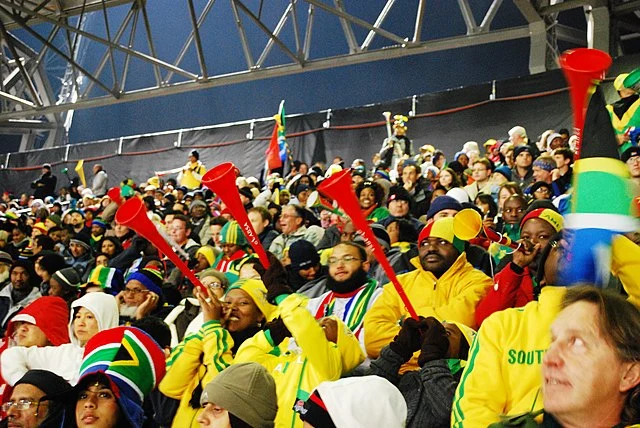The group stage of the CAF Women’s Africa Cup of Nations has ended, whetting fans’ appetites for even more excitement in the forthcoming knockout phase. The tournament was full of hard‑fought clashes, spectacular matches, and a few surprises. Traditional powerhouses such as Nigeria, Zambia, the Republic of South Africa, and the host nation, Morocco, showed that they will be in the running for the trophy.
Group A: The Hosts and Rising Stars in the Spotlight
In Group A the hosts, Morocco, and the eye‑catching Zambian team led the way. Their direct encounter ended in a 2‑2 draw, one of the most thrilling matches of the group stage. Morocco displayed mental resilience and the backing of its fans, while Zambia showed huge attacking potential.
Morocco also delivered an unforgettable show of strength against DR Congo, winning 4‑2. The true leader proved to be Ghizlane Chebbak: the Moroccan captain not only scored a hat‑trick but also steered the team through difficult moments.
The key Group A match, Zambia versus Senegal, provided fans with many twists and turns. Zambia won 3‑2, proving it is no coincidence they are listed among the favourites for the title. Senegal had earlier thrashed DR Congo 4‑0, but ultimately Zambia and Morocco, each with 7 points, advanced from the top two spots. Senegal, as one of the two best third‑placed sides, also checked into the Cup of Nations’ final eight.
Group B: Favourites Nigeria, Algeria’s Historic Success
Group B belonged to Nigeria’s defence: the Super Falcons ended the group stage without conceding a goal and with 7 points after two wins (3‑0 over Tunisia, 1‑0 over Botswana) and a draw (0‑0 with Algeria).
Algeria, which also did not concede, managed to win the crucial match against Botswana 1‑0 and draw 0‑0 twice with Nigeria and Tunisia. For the first time in history they secured a quarter‑final berth, their style aptly described as an iron defence.
Botswana, despite an attractive style of play (especially after their 2‑1 win over Tunisia), exited the tournament, as did Tunisia. What mattered most, however, was that both Nigeria and Algeria moved on, confirming their class.
Group C: The Strength of the Republic of South Africa
Group C again had its queen: the Republic of South Africa. Banyana Banyana have long been considered one of the continent’s strongest sides, and they did not disappoint their supporters, recording an emphatic 4‑0 victory over Mali. That win not only guaranteed a quarter‑final spot but also underlined their status as one of Africa’s leading women’s teams. In addition, the South Africans beat Ghana 2‑0 and drew 1‑1 with Tanzania.
Ghanaian fans also had reason to celebrate. After an impressive 4‑1 victory over Tanzania, the team reminded everyone that in women’s football it can stand up to anyone. Alice Kusi calmly converted a penalty, and Princella Adobea and Evelyn Badu took centre stage after that match. Thanks to the win, Ghana secured its place in the next phase. In the remaining matches they lost 0‑2 to South Africa and drew 1‑1 with Mali. And it is Mali, as the second third‑placed team with the best record, that will also compete in the quarter‑finals.
Quarter‑Final Line‑Ups
- Morocco vs Mali
- South Africa vs Senegal
- Nigeria vs Zambia
- Algeria vs Ghana
The Most Decorated Teams: Who Are the Favourites on Paper?
Nigeria
The Super Falcons are true legends of African football, with eleven continental titles to their name. They play dynamically and expansively and are always among the main favourites—this time is no different. Team leaders such as Asisat Oshoala also shine regularly in Europe’s top leagues.
South Africa
Banyana Banyana won the previous edition and are steadily building their brand on the world stage. They are characterised by excellent organisation and tactical discipline, which has often carried them to the decisive phases of tournaments.
Morocco
The hosts stand before a huge chance for a historic success. A team built on quick, dynamic wingers and a solid defence makes every match against Morocco a challenge. Fans hope that home support will help the side reach the final.
Zambia
This team is making its presence felt ever more strongly on the African scene. The biggest star—Barbra Banda—has shown more than once that she can decide the outcome single‑handedly. If the defence is solid, Zambia may spring a surprise.
The Other Quarter‑Finalists: Ambition and Surprises
Ghana consistently fights for medals, with players who impress with their tenacity. Senegal is boldly aspiring to be a regional powerhouse, harnessing its athleticism and the growth of women’s football. Mali and Algeria are the biggest outsiders at this stage, yet they have already proved that they can surprise and should not be written off.
Heroines on the Pitch – Players Who Could Decide Matches
Nigeria
- Asisat Oshoala: Six‑time African Women’s Player of the Year, a striker who scores in big moments.
- Rasheedat Ajibade: A lightning‑fast winger, lethal in the box.
South Africa
- Lebohang Ramalepe: Rock‑solid in defence and dangerous on set pieces.
- Refiloe Jane: The brains in midfield, excellent at threading through‑balls to the forwards.
Morocco
- Fatima Tagnaout: A threatening left winger with great dribbling and pace.
- Ghizlane Chebbak: Team captain and midfield leader, responsible for orchestrating play.
Zambia
- Barbra Banda: Captain, talisman, deadly finisher—always a huge threat in the box.
- Racheal Kundananji: Forms with Banda, an almost unstoppable duo.
Ghana
- Evelyn Badu: Experienced striker and locker‑room leader.
- Doris Boaduwaa: Dynamic, creative midfielder.
Senegal
- Nguenar Ndiaye: Key attacking figure, excellent in the air and fearless.
- Mama Diop: Powerful forward known for precise strikes.
Mali
- Aïssata Traoré: Without her up front, Mali would not be in this phase.
Algeria
- Chloé N’Gazi: Reliable goalkeeper who often saves the team at crucial moments.
Who Will Lift the Cup?
The quarter‑finals promise to be exceptionally interesting. Each match has a quiet favourite, but African football loves surprises, and outcomes often hinge on the final minutes. Seasoned Nigeria, spirited South Africa, the gathering‑momentum Morocco, and attack‑minded Zambia all possess the assets to claim gold. Yet every team must stay alert to the dark horses who have already shown that football is a game full of surprises.
Regardless of the final result, women’s football in Africa is flourishing, and the Nations Cup in Morocco will be another breakthrough moment for this rapidly developing discipline.





Leave a Reply